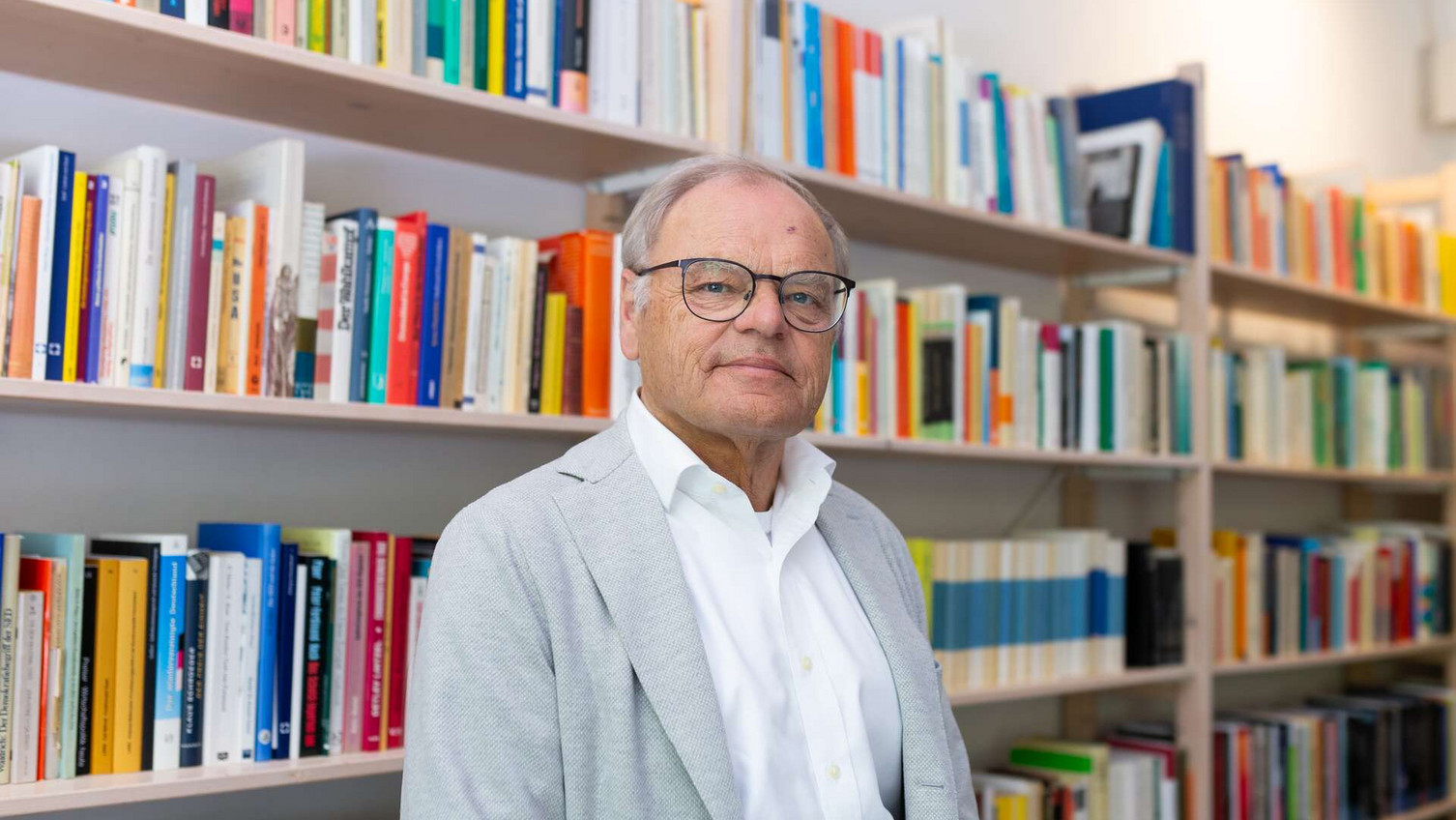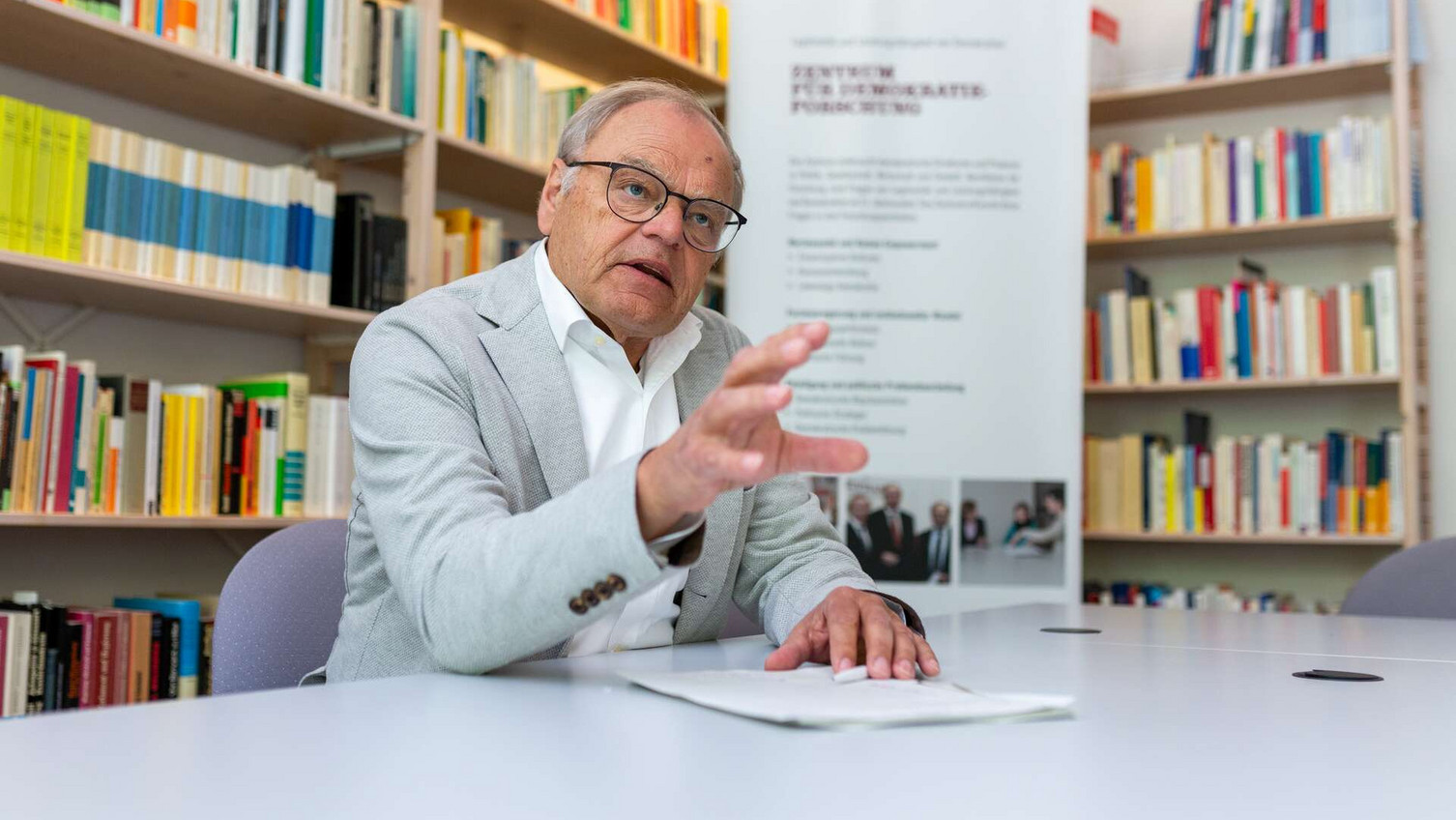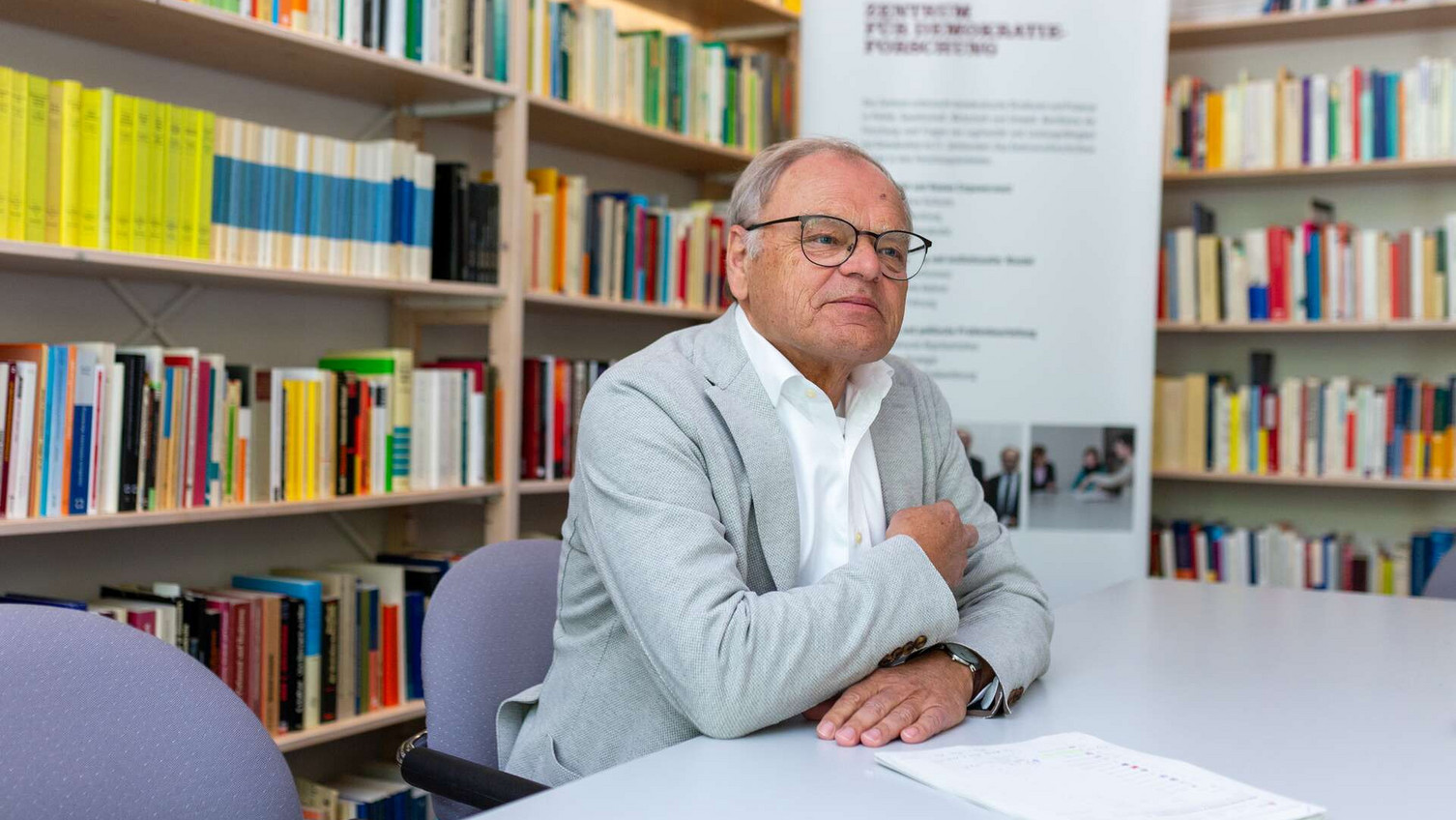20 years of ZDEMO: ‘Political science is democracy science’
2024-06-03 The Centre for Democracy Research (ZDEMO) analyses democratic structures and processes in politics, society, the economy and the environment. The centre's research focuses on questions of legitimacy and the performance of democracies. The founding director and senior professor Prof Dr Ferdinand Müller-Rommel can look back on two successful decades of research.
- Professor Müller-Rommel, you founded ZDEMO 20 years ago. Where do you see its relevance today?
Political science is the science of democracy. Given the current challenges facing our democracy, it is even more urgent today than it was 20 years ago to research the tension between the legitimacy and performance of liberal democracies. Today, the central question is the extent to which basic democratic values are affected by autocratic thinking and behaviour. In global politics, there is a race between democracies and autocracies, which is also due to mutual economic dependencies and interdependencies. At present, the question of what political world we will be living in 50 years from now is a serious one. ZDEMO will make a decisive contribution to answering this question.
How resilient is our democracy?
There is still no definite answer to this question. Some argue that democracies have eroded in the last decade and have tended to be overrun by autocratic thinking and behaviour. Others argue that democratic value structures have been stable for decades and remain resistant to the current right-wing populist challenges. Both positions will be the subject of intensive research at ZDEMO over the next few years.
How does political science support the resilience of democracy?
Let me answer with an image from medicine: democracy is sick, but not dead. Political science research first takes an anamnesis, i.e. we systematically describe the political and economic framework conditions of democratic systems and ask ourselves: What has made democracy sick? This is followed by a diagnosis: here we analyse the symptoms of a sick democracy. What political challenges is democracy currently facing? Finally, the therapy follows: what instructions can we give to ensure that democracy remains stable and does not die?
The high scientific relevance of ZDEMO is also reflected in the Shanghai ranking. Where does Leuphana stand in political science?
The Shanghai Ranking assesses, among other things, publication performance and the amount of third-party funding acquired. We are doing well internationally with the ZDEMO and are ranked 13th in Germany behind many large and traditional universities. In Lower Saxony, we are even in first place among all political science institutes. That is a great success. We are ranked third among small and medium-sized German universities and this figure has remained stable to date thanks to the high publication output and successful applications for third-party funding from our colleagues at ZDEMO.
Why was the ZDEMO founded?
The interdisciplinary ‘Centre for Democracy Research’ was founded on 2 June 2004 on the recommendation of the Scientific Commission of the State of Lower Saxony under the chairmanship of Professor Dr Hans Dieter Klingemann. He recognised that there was no centre for democracy research in Germany that systematically dealt with questions of the legitimacy of democracy. The founding of ZDEMO coincided with the period of European transformation, when Eastern and Central European states were accepted into the EU. In honour of Professor Klingemann, we have established a ‘Distinguished Lecture’, to which we invite renowned academics from Princeton, Harvard, the London School of Economics and the University of California every June.
You have focussed on young academics at ZDEMO from the very beginning. Why?
Training young academics should be one of the core tasks of every professorship. We were all once research assistants and depended on good academic socialisation from our former professors. That's why we organised international PhD summer schools in the field of party and democracy research at ZDEMO for many years, which were funded by the DAAD, the EU, the Volkswagen Foundation and the MWK. As a result, ZDEMO has become well known, especially for young researchers both inside and outside Germany. Many former Summer School participants are now professors and have fond memories of their PhD training in Lüneburg. In addition, we have successfully acquired several DFG third-party funded projects over the past 20 years in order to recruit young researchers and familiarise them with our research topics.
From 2006 to 2012, you were Vice President and established the Graduate School. How did you shape the doctoral programme there?
We developed a semi-structured doctoral programme: Since then, all doctoral students at Leuphana have taken accompanying courses, for example on the theory of science and scientific methods. This study model has enabled us to attract the best doctoral students to Leuphana for our doctoral programme ‘Democracy under Stress’. The MWK has funded ten full scholarships for three years each for this ZDEMO doctoral programme. Our success rate for doctoral degrees was correspondingly exceptionally high.
What is the main focus of the ZDEMO?
In terms of content, our work is based on three pillars: firstly, research into changing values and human empowerment; this involves analysing the attitudes of different population groups towards democracy, among other things. Secondly, we analyse the functioning of democratic institutions and political actors in Europe. And thirdly, we are analysing new forms of political participation and the development of civil society. Another milestone is the cooperation with the German Institute for Global and Area Studies (GIGA) in Hamburg in the field of international politics. In 2012, we created a joint junior professorship with the GIGA, which has been regularly extended since then.
In the mid-2000s, ZDEMO also conducted research on behalf of the state government. What was the subject of the research?
We carried out empirical projects on administrative modernisation and the Lower Saxony Model Municipalities Act. The then Minister President Christian Wulff wanted to reduce bureaucracy in public administration. His thesis was that numerous state laws are superfluous because they are never applied. We were able to confirm this assumption empirically. The projects were financed by the state and worked on together with numerous academic employees who now work in the state administration.
Your most recent major achievement was the political science conference with 480 researchers on campus in spring 2024. Why was it important to you to bring international political science together at Leuphana?
The European Consortium for Political Research (ECPR) is a key player in the global networking of political science research. Before I finally retired, I wanted to put ZDEMO and political science at Leuphana on the international map once again. I owe a great deal to the ECPR. I took part in ECPR conferences for over 20 years. Without my participation, I would not have been able to do my research.
What would you like to say goodbye to your colleagues?
Over the past 20 years, together we have managed to build up a high national and international scientific reputation. From doctoral students to post-docs, junior professors and professors, all ZDEMO members have consistently shown full commitment to research and teaching over many years. Together, we have developed a high level of identification with the centre and thus helped ZDEMO to succeed. Democracy research will remain at Leuphana and live on with a broader thematic focus. In terms of expertise, ZDEMO is now in the best hands with our new colleagues.
Thank you very much for the interview!
The Centre for Democracy Research invites you to the Hans-Dieter Klingemann Lecture on 11 June 2024. Prof. Dr Michael Bernhard from the University of Florida (Gainesville) will speak from 2 to 4 pm on ‘Party System Institutionalisation and the Durability of Competitive Authoritarian Regimes’. The lecture will be held in the central building of Leuphana University Lüneburg, room 501.



